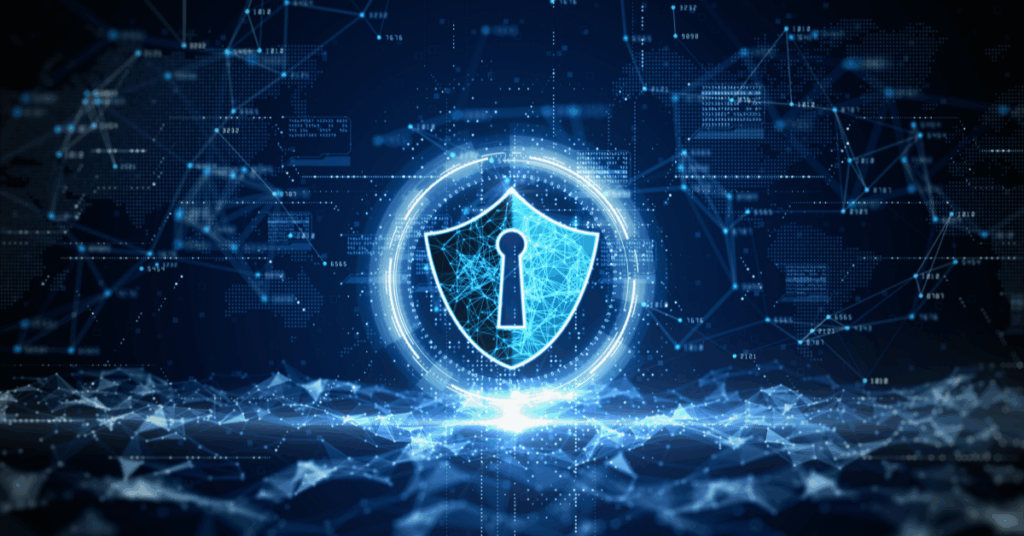Businesses that are positioned to withstand evolving cyber threats all have one thing in common: they have built strong cyber resilience that ensures their operations can continue regardless of the threats they face.
Let’s explore why cyber resilience goes beyond basic cyber security before guiding you through our carefully crafted cyber resilience checklist.
Why Cyber Resilience ≠ Basic Cyber Security
Cyber security focuses on preventing threats that are targeting your business, while cyber resilience is about keeping your business running even when defences are breached. Resilience provides a more complete approach, preparing your organisation to respond, recover, and adapt to incidents.
The Cyber Security Breaches Survey 2025 revealed that 43% of businesses experienced a cyber breach or attack in the past 12 months, highlighting the persistent threat to operations.
This is especially important for growing businesses in Glasgow, where limited resources and rising digital demands leave little room for downtime. A single ransomware attack or phishing scam can disrupt productivity, erode client trust, and cost more than just money.
Cyber resilience gives you the structure and confidence to face today’s cyber threats head-on – so your business can keep moving forward seamlessly.
Cyber Resilience Checklist
Cyber resilience should be about creating a layered strategy that keeps every part of your business secure and ready to face evolving threats. We’ve created a detailed checklist to help your organisation strengthen its defences and prepare for the unexpected. Let’s check it out:
- Policy & Governance
Set the foundation with clear, practical policies that guide your team’s behaviour and response to threats.- Create an information cyber security policy outlining how data should be accessed, shared, and protected.
- Develop an incident response plan that details how to react if something goes wrong – including who does what, when, and how.
- Regularly assess risks across your business to identify weak points and update your policies accordingly.
- Backup & Data Protection
Backups act as a safety net that keeps your critical data secure from breaches. Make sure your backups are frequent, secure, and tested by:- Using multiple backup methods (including off-site or cloud-based storage) to avoid single points of failure.
- Make sure all backups are encrypted to ensure data doesn’t fall into the wrong hands.
- Schedule regular recovery tests to ensure your backup process works when it’s needed most.
- Staff Training & Awareness
People are often the weakest link in cyber security, but they can also be your first line of defence.- Provide ongoing training to help staff recognise threats like phishing emails, spoofed websites, and social engineering.
- Run simulations to test employee awareness and improve response times.
- Make it easy for staff to report suspicious activity without fear of blame or delay.
- Threat Detection & Monitoring
The sooner you spot a threat, the faster you can contain it.- Use endpoint detection tools that watch for unusual behaviour on individual devices.
- Monitor your networks for signs of unauthorised access or suspicious traffic.
- Set up alerts that notify your team (or a trusted IT partner) of potential issues in real time.
- Recovery & Continuity
Even with strong defences, incidents can still happen. A recovery plan keeps your business running.- Establish clear recovery processes so systems can be restored quickly after an incident.
- Define key timeframes for recovery, such as how long systems can be offline before it impacts operations.
- Maintain a business continuity plan that includes workarounds, manual procedures, and customer communication strategies.
Jera IT’s Support for SMEs in Glasgow
At Jera IT, we proudly support SMEs in Glasgow and across Scotland with the tools and expertise they need to build strong cyber resilience. Our specialised cyber security professionals can help your business achieve and maintain:
- Cyber Essentials Certification: Establishes strong fundamentals and can boost cyber resilience by reducing the likelihood of insurance claims.
- Bespoke Staff Training: Interactive in-person or virtual sessions, including simulated phishing, tailored to your team.
- Managed Detection & Response (MDR): Continuous monitoring, threat intelligence, and rapid incident response, working seamlessly with your internal team.
- Backup & Recovery Services: End-to-end system backups and regular recovery testing using best-in-class tools.
Book a 30-Minute Call with Us
Building cyber resilience means putting the right policies, training, detection tools, and recovery plans in place. We help SMEs in Glasgow strengthen their defences through expert guidance, Cyber Essentials certification, and practical support that fits your business needs.
If your Glasgow-based SME is ready to get prepared, book a 30-minute consultation with us today. We’ll review your current posture and identify practical steps to elevate your cyber resilience.



